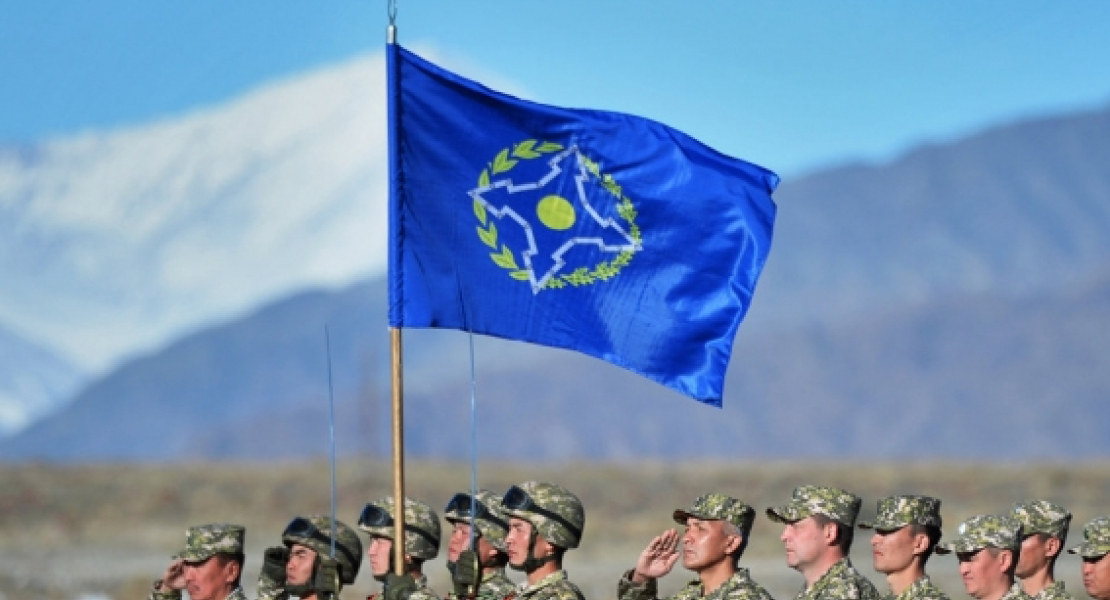Photo: Armedia.am
Difficult bargaining over appointments is something to be expected in international organizations. Having divergent positions regarding relations with the declared enemy of one of the member states is not.
On November 8, 2018, Astana hosted a summit of Collective Security Treaty Organization (CSTO). Several agreements were reached on the summit. But one of the main expectations, namely that the leaders would choose a new secretary general, did not materialize, allowing the disagreement to steal the limelight.
Commentary
- The inability of the countries to come to terms on the appointment of a new secretary general has arguably received the biggest share of attention in the media. Current disagreement is mostly about whether Armenia is to substitute Yuri Khachaturov with another Armenian candidate or whether Belarus, the next country in alphabetical order, is to nominate its candidate for the vacant position. Three possible scenarios of replacement of the acting secretary general have been discussed: Stanislav Zas from Belarus; acting secretary general Valery Semerikov from Russia or any other Armenian candidate. Unsurprisingly, Armenia prefers the latter option, whereas Belarus and Kazakhstan consider the first option as the most desirable. The existing situation can be seen as a sign of Armenia’s vulnerable position in CSTO and more generally as a sign of the lack of unified positions on a wide range of issues. This is not surprising considering that CSTO unites countries that have little in common other than their ties with Russia. But this divergence of views does not necessarily have to be an insurmountable obstacle, especially in those matters where Russia is willing to take a leading role. Notably, at this point there is no indication of the Russian side being particularly involved in solving this matter.
- Another noteworthy moment is that Nursultan Nazarbayev and Alyaksandr Lukashenka wanted to invite president of Azerbaijan Ilham Aliyev to the summit and he was ready to attend it. The invitation of non-member countries to CSTO summits is possible if every member country agrees to them participating. Unsurprisingly, the Armenian side did not appreciate the idea. Here, again, the Armenian position seems to be in conflict with the positions of Kazakhstan and Belarus. This fact is more illustrative of weaknesses of CSTO than the disagreement discussed above. Difficult bargaining over appointments is something to be expected in international organizations. Having divergent positions regarding relations with the declared enemy of one of the member states is not.
- One of the successes of the summit was an agreement on formalizing the legal status of partner and observer countries of the CSTO. It demonstrates the willingness of the member states to involve more countries in the work of CSTO and potentially to enlarge the organization. The initiative belongs to the Belarusian side and is in line with the Belarusian foreign policy of trying to promote partnership with other regions and countries in matters of security.
- Another positive note for CSTO was that the members were unanimous in their support for the Intermediate-Range Nuclear Forces Treaty in response to president Trump’s warning that the US would “pull out” of the agreement. Arriving at a unanimous position on the matters of global and nuclear security was not especially problematic since all the members of the organization except Russia are small states with no geopolitical ambitions reaching far beyond their own borders. Therefore, it was predictable that Russia managed to consolidate the positions of other members relatively easily. Besides, the small member-states of CSTO are by no means interested in increasing tensions between Russia and the US.
The summit in Astana has demonstrated positive as well as negative developments in CSTO. Interests and priorities of the member states diverge quite significantly. Nevertheless, there are some important issues on which the member states are able to consolidate their positions. CSTO is, to an important extent, united by the willingness of its smaller members to cooperate closely with Russia. Therefore, the potential of the organization depends greatly on Russia’s willingness to make it more effective.


